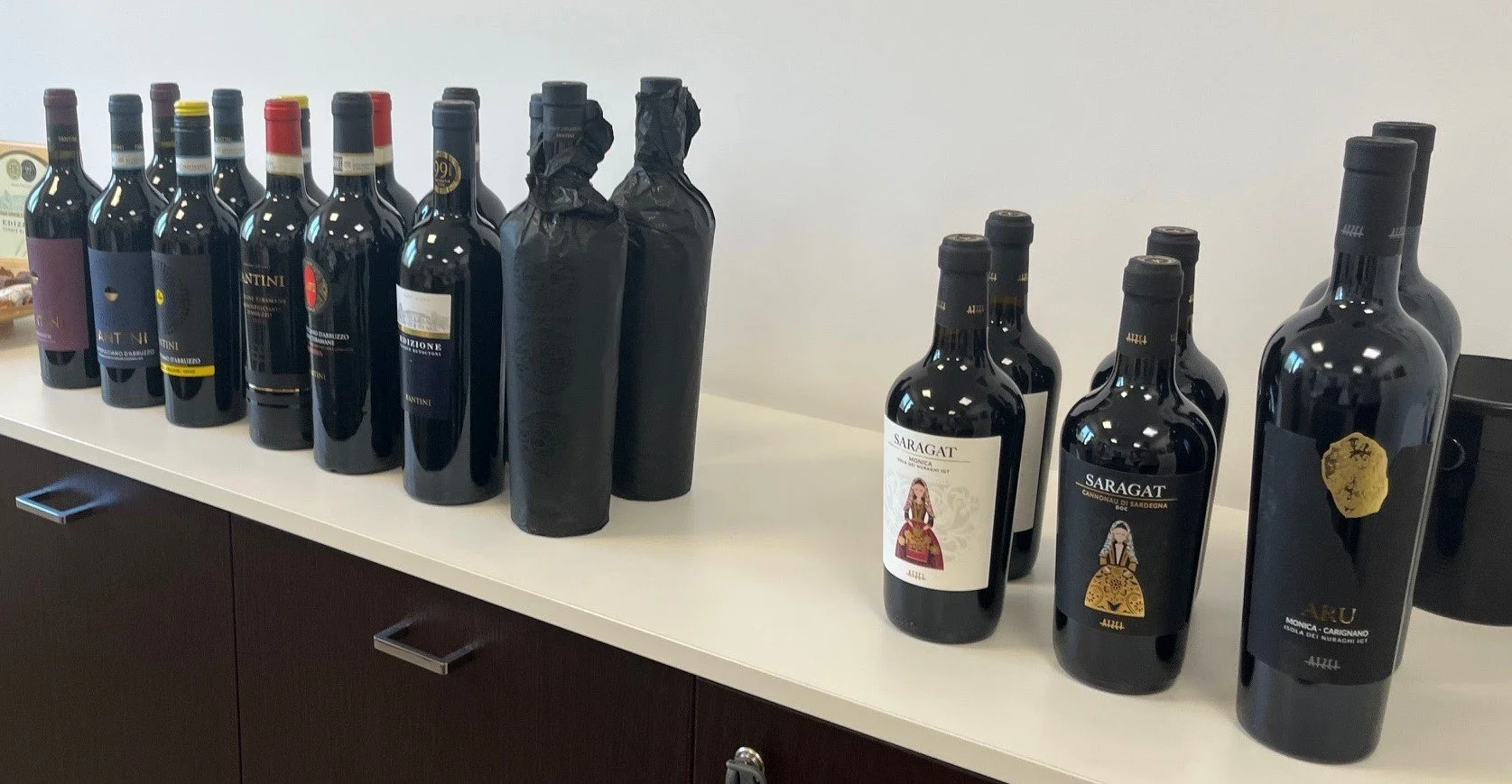Diary of a Shopkeeper, 9th November
‘And for an extra bonus point, recollect the mystery bottle wrapped in black tissue…’
William Wordsworth, the great Romantic poet, claimed that poetry is, “emotion recollected in tranquillity.” His theory was that the poet should sit quietly in front of a blank sheet, summoning up memories of some intense emotional experience from the past whether of love or anger or despair. And then – with luck – a poem would appear.
The important part is the recollection: memories are transmuted by time and the poet’s craft into powerful verse – much more powerful than if the raw emotions had simply been blurted out at the time they were experienced. It struck me recently that the same theory might apply to wine.
Three months ago, I wrote in this diary about a brief trip to Abruzzo in southern Italy, where I was impressed by the wines of a family-owned company called Fantini. I liked them so much that a week ago I used them to accompany the entire menu of our latest Lynnfield Lux.
How would these wines, which had bowled me over when sampled under the azure skies and in the scorching temperatures of an Italian summer, stand up when tried again in the much cooler climate of Orkney in late October? Would they seem as delicious and possessed of such fascinating stories when I had to talk about them in The Lynnfield, as they did when Valentino Sciotti and his two daughters – all three a personification of La Bella Figura – had done in their winery?
That’s when I thought about Wordsworth. Preparing to talk about Gran Sasso Alto Quota, the powerful red wine that was to accompany the Lux cheese, I took a long sniff from my glass: dark berry aromas, and a secondary layer of vanilla and caramel. Then a sip: incredibly rich and smooth, with flavours that lingered on and on in the mouth. It was both powerful and elegant. Such were my immediate impressions. But blurting out my knee-jerk responses would not be enough: what of the emotions recollected in tranquillity? What would they add to the experience?
What came to mind was Valentino Sciotti explaining how Montepulciano had been the workhorse grape of Abruzzo. When he and two friends – The Three Dreamers – had conceived the notion of making world class wine in their neglected home area, Montepulciano was associated with cheap plonk: il vino ordinario. But the dreamers were convinced it was capable of much more. They sought out the best vineyards: not the most prolific ones on the plains, but the ones at higher altitudes (that’s what alta quota means) where the grapes grow more slowly, and develop deeper, more complex flavours.
They then invested in the best winemaking equipment and barrels they could afford, making wine that was not as cheap as possible, but as good as possible. The barrels were an important part of this, he told me: traditionally Montepulciano had been made to drink young, within a year or two of bottling. Sciotti believed it could develop complexity and depth of flavour with age: the intense wine they were creating would be softened and smoothed by several years ageing in American oak barrels. (The vintage we enjoyed at The Lynnfield was 2017 – and it seemed as fresh as a daisy.)
Valentino’s eyes glistened with excitement as he spoke. Nowhere on earth could make Montepulciano like Abruzzo, he said. It was an article of faith for him, and his passion won me over. As I stood in the lounge of The Lynnfield, I remembered his passion. I also remembered standing outside the Fantini winery. On the western horizon loomed the high peaks of the Apennine mountains – snow-capped even in July – amongst them Gran Sasso, the highest of them all. Between the winery and the mountains lay the region known as Colline Teramane, full of hills and valleys, microclimates perfect for growing and ripening high quality grapes.
At that point I was filled with a kind of awe at the dedication of the winemaking team. Not content with picking the grapes on their doorstep, to make their flagship wines they had felt compelled to seek out even better grapes from fifty miles away. And all without knowing whether the world would be in the least interested in an ambitious wine made from a workhorse grape in an unfashionable area. They had belief – and not much else – but that was enough.
As I took another sip of the wine in the tranquillity of the Lynnfield lounge, the excited buzz of the dining room no more than a distant hum, memories of the family’s idealism and the winemakers’ dedication combined with the sheer pleasure of what was in my mouth. And I knew that was what I had to speak about. Wordsworth called it, “a complex feeling of delight.” He was talking about poetry on a page. I was talking about poetry in a glass.
This diary appeared in The Orcadian on 13th November 2025. A new diary appears weekly. I post them in this blog a few days after each newspaper appearance, with added illustrations, and occasional small corrections or additions.

